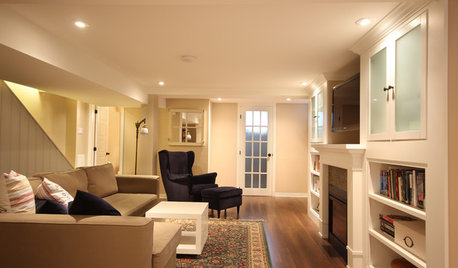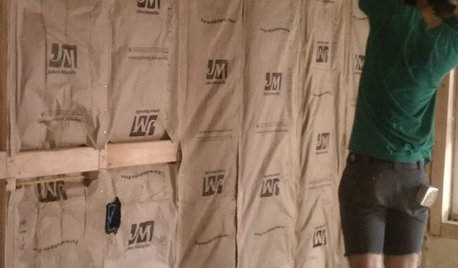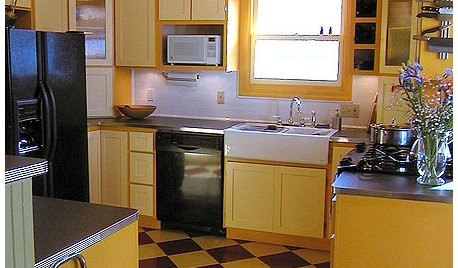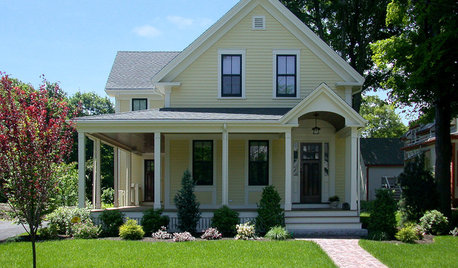Closing costs?
jane__ny
15 years ago
Related Stories

DESIGN PRACTICEDesign Practice: Start-up Costs for Architects and Designers
How much cash does it take to open a design company? When you use free tools and services, it’s less than you might think
Full Story
BASEMENTSBasement of the Week: Smart Cost Cutting, Beautiful Results
A stylish multipurpose basement for less than half the usual cost? See the budget-saving tricks that helped this underground space
Full Story
DECORATING GUIDES6 Cost-Effective Ways to Go Custom Made
Get a look that’s totally you — and possibly for a lower cost than you might think
Full Story
KITCHEN STORAGE13 Popular Kitchen Storage Ideas and What They Cost
Corner drawers, appliance garages, platter storage and in-counter knife slots are a few details you may not want to leave out
Full Story
REMODELING GUIDESBathroom Workbook: How Much Does a Bathroom Remodel Cost?
Learn what features to expect for $3,000 to $100,000-plus, to help you plan your bathroom remodel
Full Story
REMODELING GUIDESThe Lower-Cost, Low-Tech Modern Home
See how to trim building costs and still get a home design rich in modern spaces and style
Full Story
REMODELING GUIDESCool Your House (and Costs) With the Right Insulation
Insulation offers one of the best paybacks on your investment in your house. Here are some types to discuss with your contractor
Full Story
KITCHEN DESIGNKitchen Remodel Costs: 3 Budgets, 3 Kitchens
What you can expect from a kitchen remodel with a budget from $20,000 to $100,000
Full Story
BUDGET DECORATING8 Cost-Effective Ways to Get a High-End Look
Don’t discount that expensive material yet. By using a small amount in a strategic way, you can get a luxurious look without the expense
Full Story
SELLING YOUR HOUSE10 Low-Cost Tweaks to Help Your Home Sell
Put these inexpensive but invaluable fixes on your to-do list before you put your home on the market
Full Story




muddypond
dave_donhoff
Related Professionals
Carney Architects & Building Designers · Central Islip Architects & Building Designers · South Pasadena Architects & Building Designers · Ronkonkoma Architects & Building Designers · Dallas General Contractors · Homewood General Contractors · Marinette General Contractors · Milton General Contractors · Palatine General Contractors · University City General Contractors · Westchester General Contractors · Winfield General Contractors · Travilah General Contractors · South Miami Heights Home Stagers · View Park-Windsor Hills Interior Designers & DecoratorsLinda
jane__nyOriginal Author
cearbhaill (zone 6b Eastern Kentucky)
folkvictorian
dave_donhoff
janjan212
jane__nyOriginal Author
setancre
dave_donhoff
jane__nyOriginal Author
dave_donhoff